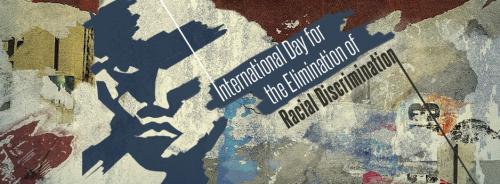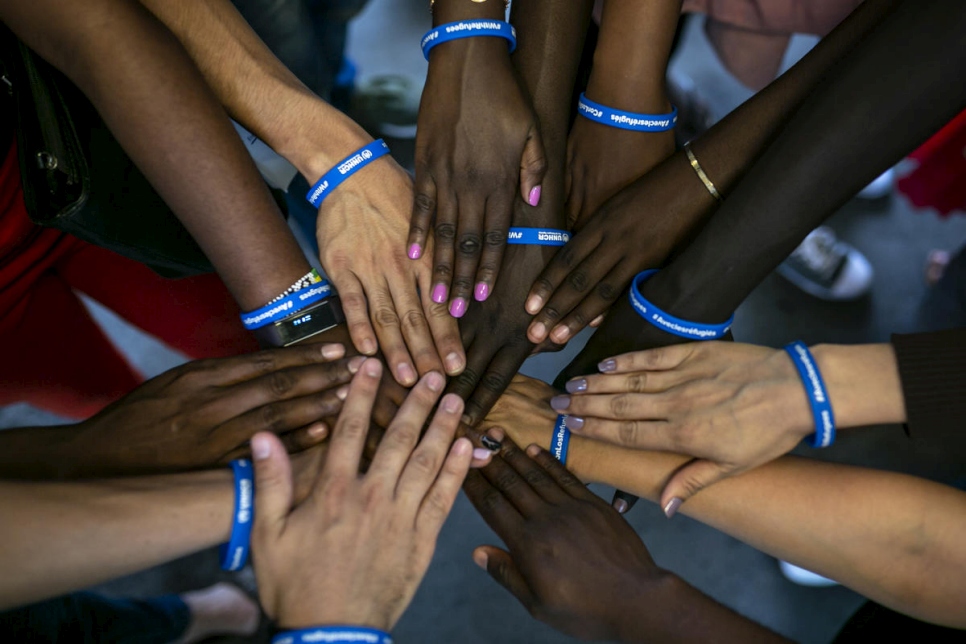
International Day for the Elimination of Racial Discrimination (unesco.org)
The UN General Assembly resolution 2142 (XXI), adopted on 26 October 1966, proclaimed 21 March as the International Day for the Elimination of Racial Discrimination to be commemorated annually. On that day, in 1960, police opened fire and killed 69 people at a peaceful demonstration in Sharpeville, South Africa, against the apartheid "pass laws". Proclaiming the Day in 1966 which signifies the struggle to end the policy of apartheid in South Africa, the General Assembly called on the international community to redouble its efforts to eliminate all forms of racial discrimination.
Over the years, UNESCO has celebrated the International Day by organizing events in Headquarters and its field offices, as well as in cooperation with the member cities of the International Coalition of Inclusive and Sustainable Cities – ICCAR (formerly the International Coalition of Cities against Racism).
The struggle against racial discrimination is a central element of UNESCO's work to build peace in the minds of men and women, through education for tolerance, the rejection of racist stereotypes that may persist in culture or in the media.
International Day for the Elimination of Racial Discrimination | United Nations
Youth standing up against racism
“Youth standing up against racism” is the 2021 theme. It engages the public through #FightRacism, which aims to foster a global culture of tolerance, equality and anti-discrimination and calls on each and every one of us to stand up against racial prejudice and intolerant attitudes.
Young people massively showed their support at the 2020 Black Lives Matter marches, which drew millions of demonstrators worldwide. On the streets, groundswells of youth - mostly teens and twenty-somethings - came together to protest against racial injustice. On social media, they mobilized participation, calling on their peers to speak out, and to stand up for the equal rights of all.
Their activism was all the more remarkable in the context of the COVID-19 pandemic, which saw restrictions on public gatherings in many countries. As the virus began to spread in early 2020, a parallel pandemic was unleashed - of hatred, violence and fear against certain ethnicities and nationalities. It quickly became clear that stark inequities, sometimes rooted in racism, had subjected minorities to a significantly higher risk of infection and death.
COVID-19 has heavily impacted young people, including those from minority backgrounds. Many are now grappling with an increase in racial discrimination, in addition to severe disruptions to their education; diminished employment prospects; and limited ability to participate in public life, which stymies their individual and social empowerment.
Statement by Filippo Grandi, UN High Commissioner for Refugees Over the past year, we’ve witnessed the deadly impact of the COVID-19 pandemic. But the scourge of racism has also devastated many lives with tragic consequences. Violent and deadly attacks against Black, Brown, Asian and Indigenous people, toxic language, and daily and sustained racially charged acts have rightly forced painful - but necessary - conversations to re-examine prejudice, privilege, the way we view the world, and most importantly how we act. We must take this opportunity to work towards a world that is not just against racism, but is actively anti-racist. As the UN High Commissioner for Refugees, I have seen first hand how racism and racial discrimination are a root cause of persecution and displacement. Actively combatting racism and racial discrimination can and will help prevent this. It will also reduce the dangerous discrimination and stigmatization that all too often confronts refugees in their countries of asylum. A failure to eliminate racial discrimination will continue to force innocent people to flee and fear for their lives. But today is not only a recognition of the need for others to act. We must all pause and reflect on ourselves, our organizations, and our actions. UNHCR is looking inwards to build a more diverse and inclusive workforce to deliver on our mandate and respond to the needs of displaced and stateless people around the world. We are working to become better cognizant of our unconscious bias and to eliminate discrimination to become a more anti-racist, non-discriminatory organization. This is my commitment as High Commissioner: to ensure that UNHCR is an organization where diversity is not only valued, but where every colleague feels seen, heard, and represented. This year on International Day for the Elimination of Racial Discrimination I call on all of us to renew our commitment to listen, stand up, speak out, and actively combat racism and racial discrimination. Racism and racial discrimination against anyone of us hurts all of us. More information:
High Commissioner’s Message on the International Day for the Elimination of Racial Discrimination
Speech by President von der Leyen at the European Anti-Racism Summit











Add new comment